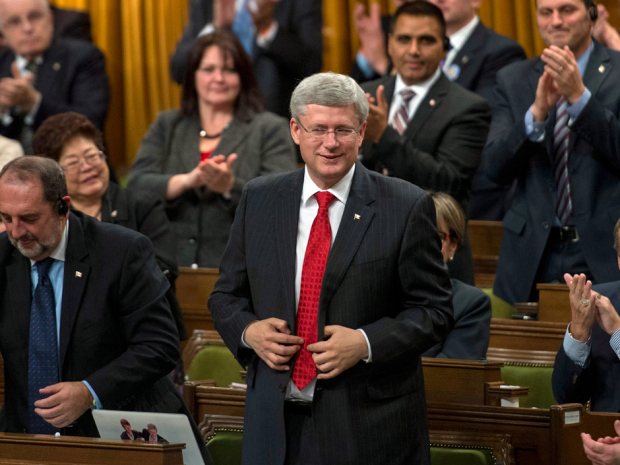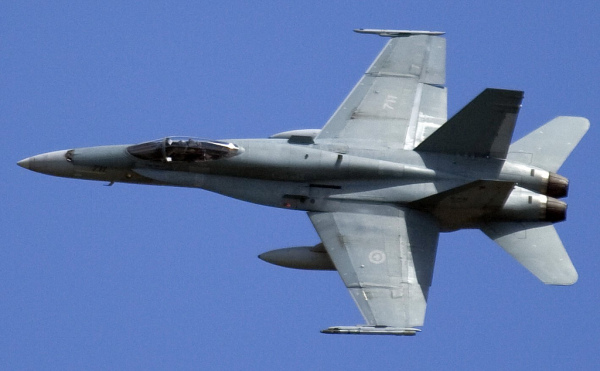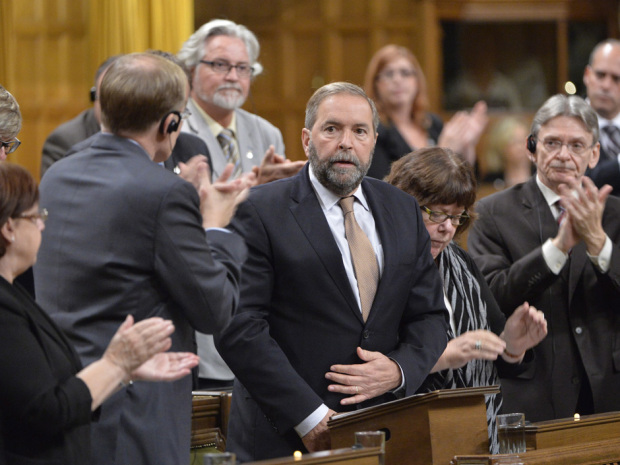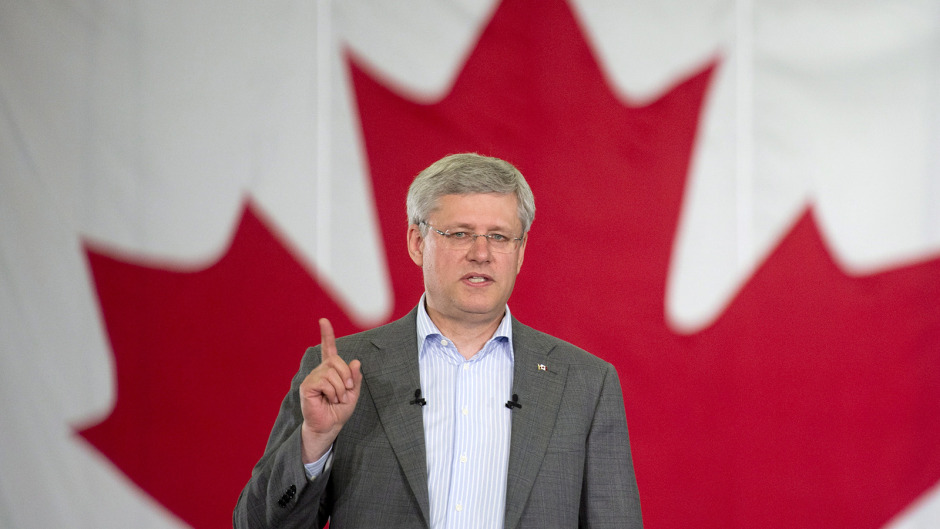Canada is now officially at war with Islamic State, the Sunni jihadist organization that has left a bloody trail of death and destruction in Syria and Iraq.
By a margin of 157-134, the Canadian parliament on Oct. 7 passed a motion authorizing air strikes against Islamic State in Iraq for a period of up to six months. The motion was introduced by Prime Minister Stephen Harper last week in response to a U.S. request. It was backed by 155 Conservatives, one Independent and a Green Party MP.

Canada, which fought the Taliban in Afghanistan from 2005-2011, will deploy nine aircraft and several hundred military personnel to the Middle East.
In justifying Canada’s role, Harper said that Islamic State poses a threat to the region and to Canada as well. Unless it is confronted directly, he added, Islamic State will continue to grow. “We do not take this step lightly,” Harper stated, saying that Canada was obliged “to do its part” to combat Islamic State.
Canada joins a coalition of more than 50 nations whose broad aim is to degrade, if not destroy, Islamic State, which has conquered and managed to hold on to wide swaths of territory in northern Syria and northern and western Iraq.
With this commitment, Canada has, in effect, declared war on Islamic State, the most destabilizing force in the Middle East since Saddam Hussein of Iraq. Islamic State, whose overarching objective is to establish a borderless caliphate in the Middle East, has imposed a reign of terror on areas under its control, persecuted and killed Shiite Muslims and Christians, harassed and slaughtered members of the Iraqi Yazidi minority and beheaded two American journalists and two British aid workers.
It’s a barbaric and medieval group that must be stopped.

The six CF-18 jet fighters, two surveillance planes and refuelling plane that Canada has promised to send will be based in Kuwait. In addition, about 600 Canadian support personnel are to be dispatched to Iraq, joining 26 military advisers already there.
No Canadian soldiers — boots on the ground — will fight in Iraq, Harper said. But Canada will fly combat missions, like France, Britain, Australia, Belgium, Holland, Denmark and several Arab states.
Canada will not join American jets on bombing missions in Syria, but Harper has left the door open to joining the aerial campaign there.
Judging by surveys, almost two-thirds of Canadians support the mission. Nonetheless, the Liberal Party and the New Democratic Party, respectively headed by Justin Trudeau and Thomas Mulcair, voted against Harper’s resolution, claiming that Canada’s contribution should be confined to humanitarian and medical assistance, relief to refugees and airlift transport.
Both Trudeau and Mulcair stated that Harper had failed to make a convincing case for military intervention, that a few aging planes would not make much of a difference and that “mission creep” could embroil Canada in a quagmire.

During the two-day parliamentary debate in Ottawa, Mulcair accused Harper of “plunging Canada into a prolonged war without a credible plan.” Claiming Harper has been evasive in divulging details, he said that Canada has embarked on “an unclear mission for an unspecified time, in an undefined area, with uncertain utility.”
In defending his position, Trudeau said Harper had failed to demonstrate “transparency or accountability.”
With its decision to wage an air war against Islamic State, Canada — which declined to join the “coalition of the willing” in Iraq in 2003 — will participate in its first military mission in the Middle East since the NATO-led air strikes in Libya in 2011, which deposed Moammar Gaddafi’s authoritarian regime.
Harper seems to have no illusions about what can be accomplished in Iraq. The goal, as he sees it, is to “significantly degrade the capabilities” of Islamic State rather than destroy it altogether.
Air power alone will not eliminate Islamic State, a dedicated, resilient and resourceful enemy that commands a well-equipped force of upwards of 30,000 fighters. Ultimately, only the Iraqi army, supported by Shiite militias, Sunni tribes and coalition air strikes, can defeat or contain Islamic State.
At the moment, however, the poorly-commanded, corrupt and demoralized Iraqi army — which ignominiously melted away in the face of an Islamic State offensive against Mosul in June — is hardly in a position to achieve these objectives, let alone preserve Iraq’s territorial integrity.
In Syria, the United States is counting on non-jihadist fighters to take on Islamic State, but they will not be ready for at least a year. Even then, it’s debatable whether they’ll be able to stand up to Islamic State. This remains an open question. Until these forces can be placed on the battlefield, countries like Canada will try to degrade Islamic State through air strikes.
In any event, Canada is certainly doing far more to combat Islamic State than fellow NATO member Turkey, which has remained passive as Islamic State fighters converge on the Syrian border town of Kobani.
Last week, Turkish President Recep Tayyip Erdogan pledged to join the battle against Islamic State, but his promise is conditional on the coalition establishing a no-fly zone in the border region and launching direct strikes on Syrian President Bashar al-Assad’s Baathist regime.
Erdogan has his priorities wrong.
Before the United States and its allies deal with Assad, they should concentrate on hitting Islamic State as hard as possible.
Harper understands this imperative. Erdogan does not.
